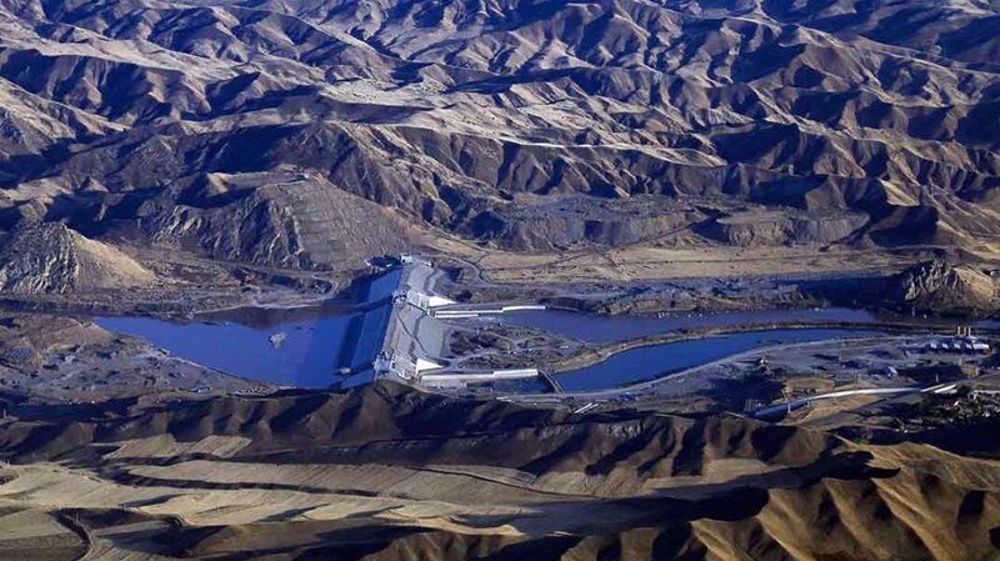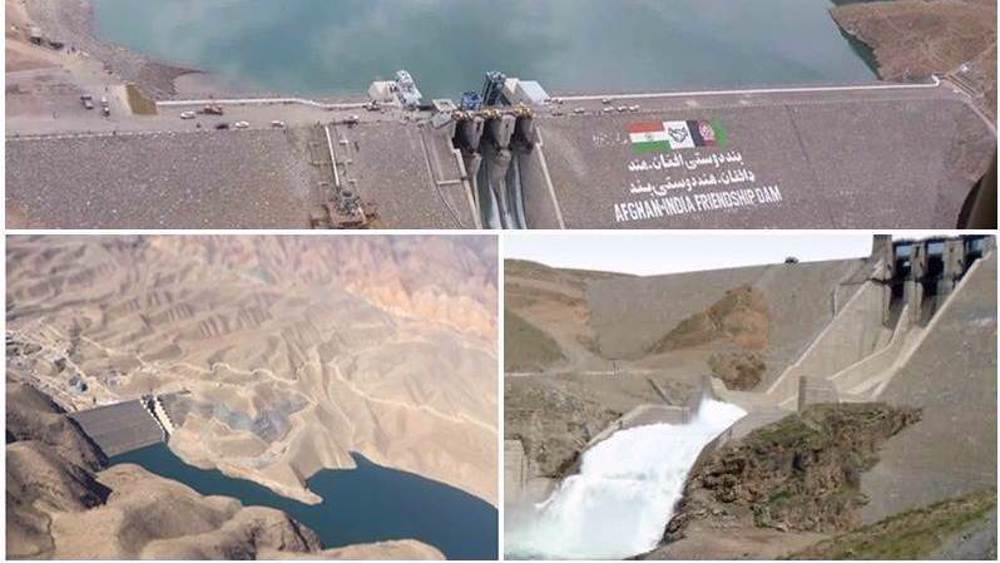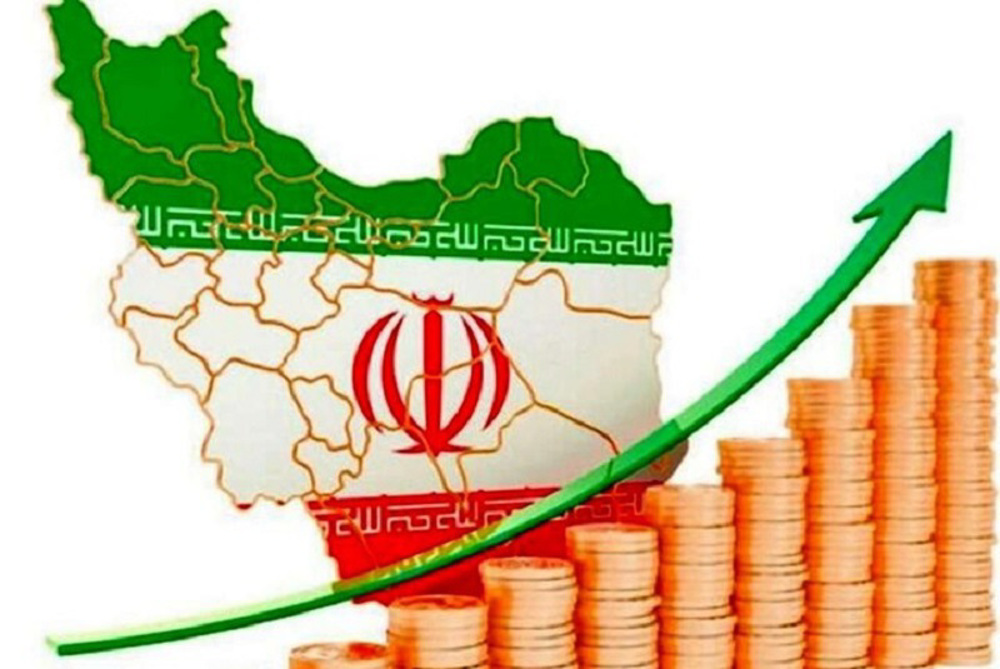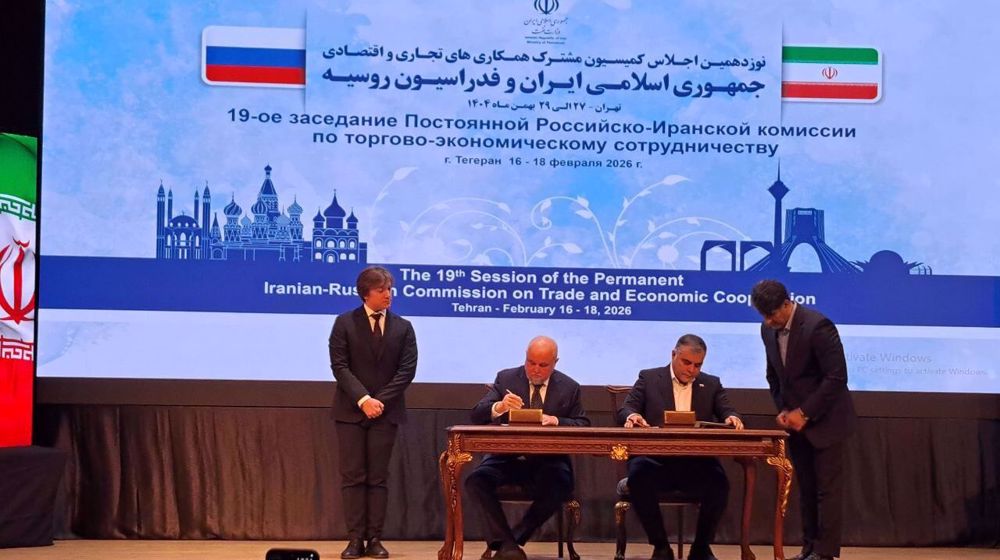Iran’s water diplomacy versus neighbors
Iran's foreign policy towards neighbors is a policy of friendship and brotherhood, but it has always had differences with some of the neighboring countries over the management of water resources.
These differences have sometimes led to verbal and even military conflicts, resulting in the formation of water diplomacy in Iran's foreign policy in light of the country’s long borders with its neighbors.
Iran is bound by seven countries on land, with which it shares a total of 5,894 km of borders. The 1,608 km land border with Iraq in the west is the longest, while the 45 km border with Armenia in the northwest is the shortest.
In the northeast, it shares 1,190 km of borders with Turkmenistan; in the southeast, it has 925 km of shared borders with Pakistan and 919 km with Afghanistan. The border with Azerbaijan in the northwest is 757 km in length and 566 km with Turkey.
Iran’s water diplomacy towards its northern neighbors and Pakistan is generally assessed as positive, with which most of the disputes have been resolved through constructive negotiations.
There are, of course, ongoing negotiations with Armenia over the long-term pollution of the Aras as a result of metal mining and waste from the Metsamor nuclear power plant.
According to the National Geographic, the Metsamor reactor - located in a seismic zone only 36 kilometers from Armenia's capital and most populous city - is among the most dangerous nuclear plants in the world.
With regard to western neighbors, there is a state of relative stability with Iraq and Turkey, even though the extremely sensitive region is prone to severe water disputes in the future.
However, there is a nagging sense of unease with the eastern neighbor which is ignoring water-sharing contracts with Iran.
Severe droughts in the region and the Taliban’s conflict of views with the Islamic Republic have seen the ruling group in Afghanistan block river water from entering Iran, prompting Tehran to complain to the United Nations under its water diplomacy principles.
Water diplomacy means the potential for conflict and violence, or otherwise, cooperation and management over shared and international water resources, which has received much attention in recent years due to worsening crises.
Several legal theories have been proposed regarding the exploitation of shared waters, the most important of which are the Harmon doctrine of absolute sovereignty, the doctrine of absolute riverian integrity and the doctrine of limited territorial sovereignty.
Under the Harmon doctrine, a riparian state, often the uppermost riparian, has the absolute freedom to utilize the waters flowing through its territory regardless of the effect of its actions on other riparian states. This idea is widely debunked and even declared “dead”.
The riverian doctrine stipulates that a state may not alter the natural flow of waters passing through its territory in any manner which will affect the water in another state, be it upstream or downstream.
The third doctrine, as an intermediate approach requiring equitable and reasonable use of water resources and prevention of harm, has been taken in resolving the majority of international water disputes.
Iran’s civil law for the use of shared water resources is based on Islamic theory which is said to have been established by Prophet Muhammad (PBUH) in Medina.
Islamic theory gives priority to the exploitation of shared water resources to the owner or country of the upstream, requiring that the surplus water be sent downstream. Nevertheless, according to this theory, the upstream does not have the right to cause damage to the downstream.
The rising need for water amid widespread poppy cultivation in Afghanistan and its leaders’ refusal to allocate water rights to Helmand River has caused the drying up of Iran's Lake Hamun and the destruction of agriculture in its Sistan and Baluchestan province.
Afghanistan is also building dams on the Harirud River, which has cut the water flow to the Iran-Turkmenistan Friendship Dam by 70%. The recent inauguration of the second dam on Harirud is about to cause serious problems of security proportions in the supply of drinking water to Mashhad and agricultural water to Khorasan Razavi province in Iran.
Afghanistan’s behavior is in contradiction with the most accepted theories on the exploitation of shared waters and hence, Iran is entitled to exploiting its full rights to the Helmand, Harirud and other rivers.
Afghanistan, however, would be better off by improving the cultivation pattern and increasing the irrigation efficiency in the watersheds within its territory, and thus securing Iran's legal water rights.
Otherwise, the country would be required under international water law (IWL) to pay damage for the enormous losses which its disregard for water rights has caused to other sovereign nations.
Saudi Arabia lobbied for UAE sanctions: Trump
IRGC launches missile, drone strikes against Israel in response to US-Israeli aggression
IRGC pounds US bases across West Asia following US, Israeli aggression
VIDEO | Plan for US-pegged digital currency in Gaza raises sovereignty fears
OIC welcomes Oman-mediated Geneva talks between Iran, US; warns against use of force
VIDEO | Campaign to boycott Israeli ‘apartheid dates’ in UK intensifies during Ramadan
VIDEO | Pakistan launches Operation Ghazab lil-Haq after Afghan border firing
VIDEO | Pakistan condemns Israel’s expansionist agenda in Palestine at OIC











 This makes it easy to access the Press TV website
This makes it easy to access the Press TV website